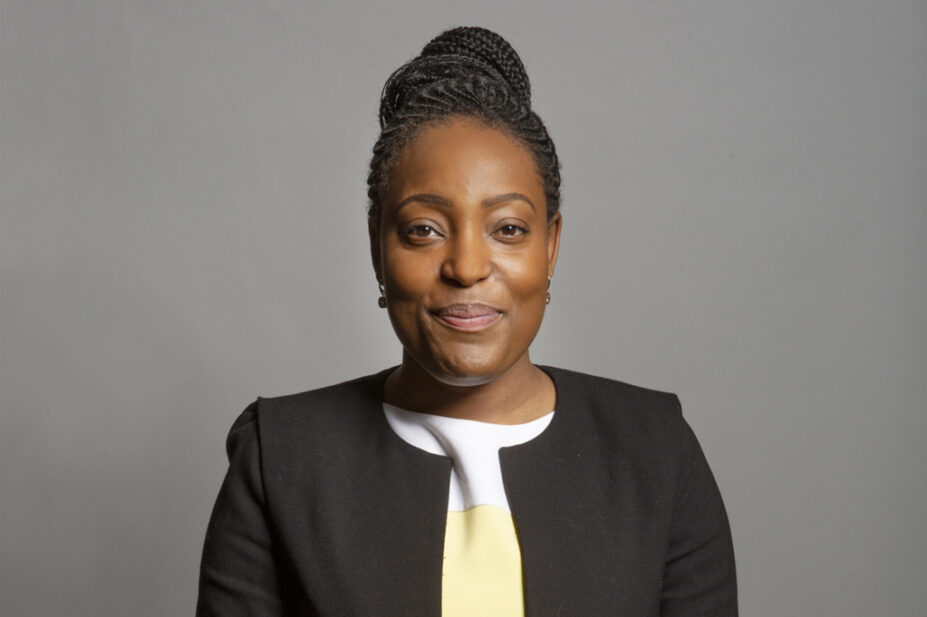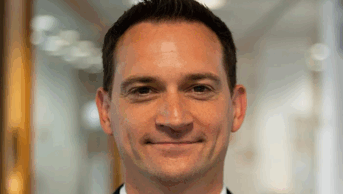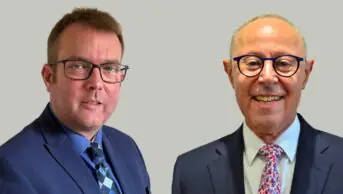
UK Parliament
Before she was elected as Labour MP for Coventry North West, Taiwo Owatemi worked for two years as a senior oncology pharmacist at Dartford and Gravesham NHS Trust and still works occasional locum shifts for Tesco Pharmacy.
Her first-hand experience of the pressures facing the pharmacy profession means she is well placed to be a member of the Health and Social Care Select Committee, which she joined in March 2020, and as chair of the All-Party Pharmacy Group (APPG), a position that she took in December 2022.
While the APPG does not have any official role in policymaking, Owatemi says the cross-party group of MPs and members of the House of Lords is able to set out the needs of pharmacy staff in a way that “key stakeholders really understand”. The APPG was set up with this purpose in 1999 and currently receives its funding from pharmacy representative bodies, including the Pharmaceutical Services Negotiating Committee, which negotiates the pharmacy contract with ministers.
In January 2023, the APPG published ‘The future of pharmacy: manifesto report’, which includes recommendations to see that community pharmacy’s “full potential is unleashed”. This included yet another call for implementing “a fully funded English ‘Pharmacy First’ service immediately”.
The idea of setting up a national minor ailments service in England, similar to Scotland’s NHS Pharmacy First service, was first floated by then health secretary Sajid Javid in October 2021. However, these plans appeared to have been shelved in September 2022, following the announcement of an agreement on the final two years of the current community pharmacy contract.
The Pharmaceutical Journal sat down with Owatemi to discuss the APPG report’s recommendations, the intense pressures on community pharmacy and why the government may be dragging its feet on rolling out a Pharmacy First service in England.
What’s your ideal vision of what a community pharmacy can do?
What I would like to see, ideally, is a proper Pharmacy First model within the English system, giving pharmacists more autonomy to be able to prescribe and give the services that patients need.
In a perfect world, I would like to see pharmacies as the first port of call when patients have any illness
There are some services that we can get going; a good example is the vaccination services. We shouldn’t be talking about that now, that should have been a clinically commissioned service, paid for appropriately. In a perfect world, I would like to see pharmacies as the first port of call when patients have any illness, but also, pharmacists being able to run their own clinics to provide that extra support and care for patients.
What I would love to see before the end of 2023 is a Pharmacy First service up and running. I think that’s realistic because they’ve got some time before April 2023 to start financially planning for 2024.
On Pharmacy First, the Pharmaceutical Services Negotiating Committee said it is ready to negotiate, and health secretary Steve Barclay said the government is on the same page — what’s the hold up?
Steve Barclay says the government is on the same page, but he looked shocked [at the health and social care select committee meeting on 31 January 2023] when I said Pharmacy First. I don’t think he really understands the model because when you ask for details of what Pharmacy First will look like in England, there isn’t a clear outline.
What’s probably holding it up is the fact that there are some internal politics, purely to do with the fact that some of the services pharmacists are asking to deliver are currently being delivered by GPs. Those discussions need to be had about changing the way that those services are currently commissioned.
The All-Party Parliamentary Group report recommended that ‘future commissioning must recognise that community pharmacy is the front door to the NHS’. What does that look like in practical terms?
When decisions are being made about primary care, they have to ensure that pharmacy is at the core. We are open pretty much 24 hours and we are easy for any patient to access. That means when we are debating about how certain services are commissioned, such as vaccination services or contraception services, we should not be an afterthought.
It should be: how do we ensure that patients get the best access to this care? Which healthcare professional is available to deliver that? Who has the skillset to do that? From my perspective, all three of those boxes are ticked by pharmacists.
The report talks about ‘new care pathways for patients’. Does the All-Pharmacy Parliamentary Group have anything in mind specifically?
We’ve had discussions about the fact that, for many conditions, pharmacists should be able to do proper referrals straight to secondary care. There’s no reason why patients have to book additional appointments with their GP only to get referrals, when we have the clinical skills to identify or notice that the patient’s condition is worsening and advise them to go and see a secondary care clinician.
Our priority right now is to look at how we can play an essential role in reducing some of the challenges that primary care is facing
I think a simple example is when you look at dermatology services: we can look at somebody and say, “OK, your dermatological condition is worsening, or that you’re going to need to see a consultant and to deal with this situation.” Pharmacists could easily with help that.
How can pharmacists negotiate more effectively with the government to get these services going in the next round of contract negotiations?
We should not be negotiating every five years, I think it should be every three years, because the health landscape changes so frequently. I think that our priority right now is to look at how we are able to play an essential role in reducing some of the challenges that primary care is facing. One is referrals and patients having access to GP services. And two is being able to provide some of the services that I’ve said, again, to reduce the burden of GPs.
It’s about creating a business case that really highlights the fact that we have those skills. It’s our job to convince people and to have conversations with people — the people who are responsible for making those decisions on the table — it’s going to be a lot of campaigning. But it’s about having a united voice and a united vision of what services pharmacy wants to deliver.
From conversations with your colleagues, what is behind the government’s continued reluctance to provide more funding for community pharmacy?
I think the reason why pharmacy hasn’t been a key area for funding is because as a profession, we haven’t been vocal enough to ensure that every member of the public understands the situation that we’re in. Given the fact that we’ve been in this difficult situation for years now, it’s still a surprise to me that most people I speak to, just the general public, don’t think there’s an issue or don’t even understand the different services that local pharmacists provide. A lot of that has to do with the way we’ve brought patients along on the journey of our profession.
What needs to change to get that message across?
There must be conversations at a university level about how, as pharmacists, we can be more proactive about the future of our profession. I’m always amazed at how great doctors are at advocating for what they want and they are active even at the university level of the British Medical Association; pharmacists are just not there. That’s something that needs to change.
Is there still a feeling that there are too many pharmacies?
I get the feeling that the Department of Health and Social Care (DHSC) thinks there are too many pharmacies. Now we’re dealing with the consequences because a lot of pharmacies that are shutting are in the most deprived areas, and it’s actually impacting health equality. It’s one of the things I have encouraged the secretary of state and the DHSC to look at, to ensure that pharmacies are in the best areas so they are providing care to patients who need it.
Do you feel that this message has been heard?
I know that they are aware that this is the messaging, but for me to feel like it’s been heard, I need to see a change. Since I haven’t seen a change in the direction that I would like to see, I don’t feel like the message has been heard clearly enough.
The All-Pharmacy Parliamentary Group (APPG)’s report is one of several reports recently from pharmacy representatives that highlight many of the same issues. What advantage does the APPG have in getting these points across?
The APPG has direct access to be able to ensure that the message we’re trying to get across is delivered in a way that key stakeholders really understand, but also we’re able to continuously monitor the progress and actions taken. The APPG has an advantage in that we can also work with other APPGs to further champion pharmacy and champion some of the key issues that we’re worried about.
Currently, we’re in discussions with the life sciences APPG because access to medicine is a big issue right now. The life sciences APPG represents the research and development aspect of that, and we represent the delivery aspect. So, from my perspective, it makes sense for us to join together.
With regards to workforce, there are many health APPGs that have workforce challenges, such as the radiographer APPG, where we can work together to champion the challenges that we have because when we have a united voice, ministers are more likely to listen.
Shadow health secretary Wes Streeting said something similar to Steve Barclay in that he would like to see pharmacists ‘do more’. What specifically is a Labour government planning to offer pharmacists?
I will be honest — Labour’s policy is currently being developed. Wes Streeting has been great in terms of allowing me to feed into that. Right now, I’m in the process of speaking to different pharmacy groups in order for me to be able to answer this question properly. But I am meeting with different pharmacy professions, from homecare pharmacy to the different groups that exist locally and nationally, to really understand what pharmacy wants to see. Only then will I be able to outline Labour’s policy.
From your experience of working in a hospital setting, is there more that the government could be doing to tackle medicines shortages?
Yes, and that’s part of some of the meetings I’ve been having. First of all, the government has to accept the fact that there are supply issues, which, for some odd reason, they find it very difficult to accept. But also, it’s about looking at our relationship with industry. Many pharmaceutical companies have told me that they are looking at changing the way that they supply to the UK and it is going to have consequences for our healthcare system.
Is this a result of Brexit or is it the increasing tax rates under the voluntary scheme for branded medicines?
I think it’s both. Brexit has been an issue for the supply chain and that’s something every sector is feeling. But also with taxes — what’s happening with the voluntary scheme for branded medicines — that is having an impact. I’ve had many chief executives of pharmaceutical companies being honest and saying that they are finding it difficult to be able to put forward a financially beneficial business case for the UK, and for them to keep prioritising goods and services to us. That is concerning.
You may also be interested in

Ngozi Kalu: ‘When research lacks representation, findings become biased and inequalities emerge’

Henry Gregg: ‘The only way to slow down pharmacy closures is to start closing that £2.6bn funding gap’
